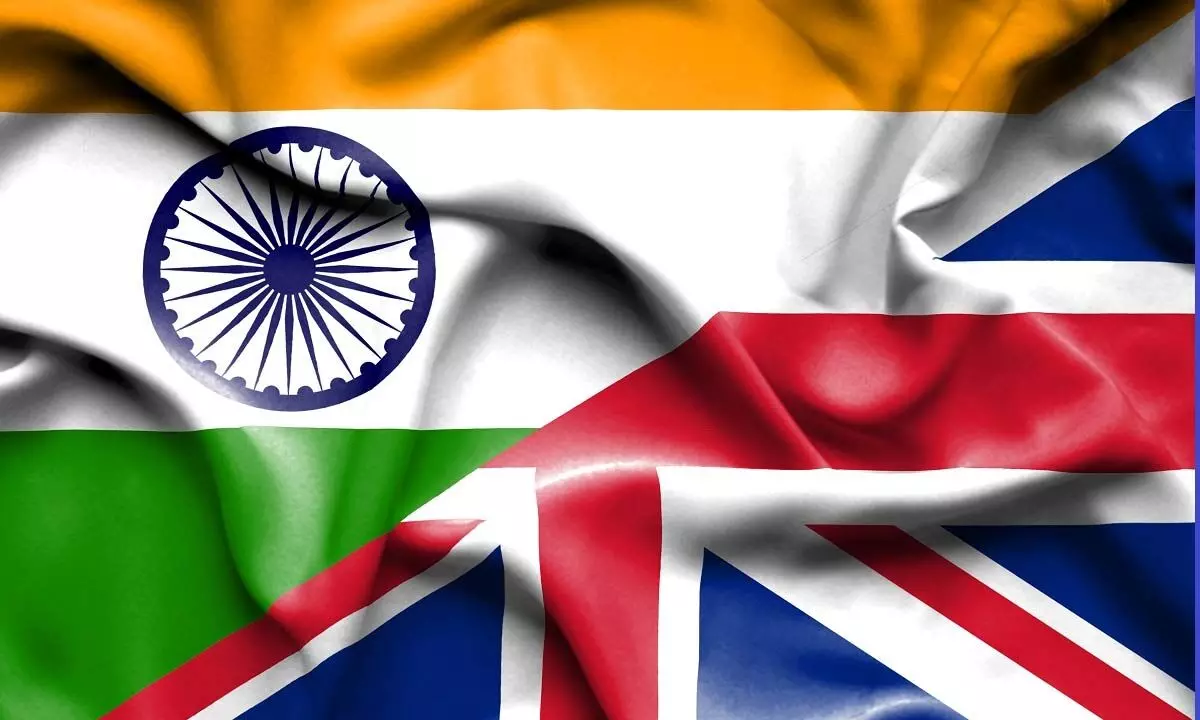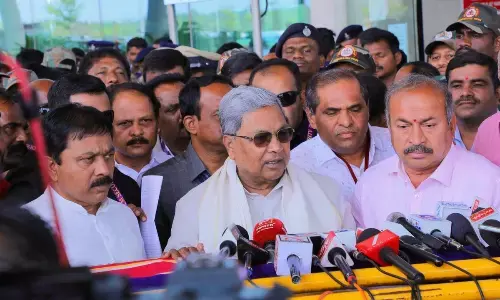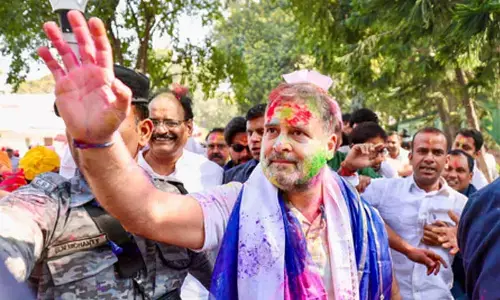Indo-UK economic ties set for new upgrade

Indo-UK economic ties set for new upgrade
The Indo-UK FTA is especially significant because it will not only increase trade flows, but also promote increased bilateral investment
The passing of Queen Elizabeth-II has sparked considerable debate over the colonial era especially as it came right after the revamping of the Central Vista in the capital. It is an apt occasion to reflect on the deepening of ties between India and the UK especially as the size of the two economies is now on an equal footing. This country has just emerged as the world's fifth largest economy, a distinction held till recently by the UK. The colonial legacy is in the distant past and the two countries are engaging on the basis of their own national self interest.
It cannot be forgotten that the situation has altered dramatically for the UK after Brexit. At the time, it felt that breaking away from the European Union would enable the country to prosper and grow more rapidly. The bureaucracy of the European Commission was also considered a hindrance in the way of growth while Britain was hampered from having independent economic ties with other countries. But now entering into fresh investment and trade ties is becoming a huge task especially when the entire world is facing economic uncertainty due to the repercussions of the Ukraine conflict.
In this backdrop, India's lure has increased especially with its large domestic market and growing clout as a major player on the world stage. It is also the fastest growing economy right now with an expectation of 7.5 per cent growth in the current fiscal. Its inflation management is probably the envy of more developed countries which are facing 40 year highs like the US at 8.1 per cent. The UK too is grappling both with inflationary pressures, high fuel prices and pressure on its currency. Besides, having moved out of the European Union, it will lose many of its trading benefits on that continent. It is thus looking to expand its trade partnerships.
The UK has already been disappointed that there is little prospect of a free trade deal with its close ally, the US which has made it position clear on this issue. It had been anticipated that after Brexit, the country would be able to enter into several meaningful bilateral trade pacts. These are not emerging as easily as had been expected by Brexiteers. Truss has therefore decided to focus on membership of the Trans Pacific Partnership (TPP) along with trade deals with the Gulf Cooperation Council and, more importantly, India.
This country is equally keen to push for an early conclusion to the proposed Indo-UK FTA. The target for finalising an early harvest agreement has been set for Diwali or end October this year. India's enthusiasm for a bilateral trade agreement with one of the world's biggest economies has been spurred by the fact that the US has indicated its disinterest in any trade pact for the time being. And the proposed free trade agreement (FTA) with the European Union has been languishing for nearly a decade. The UK's interest at this stage thus aligns with this country's needs. One of the key issues for the Indian side is easing of visa curbs to allow skilled professionals from here to live and work in that country. In addition, it is looking forward to lower tariffs on exports of labour-intensive products. The British side, on its part is keen to have market access for legal services and reduced tariffs on imports of Scotch and automobiles.
The Indo-British deal also needs to be viewed in the context of this country's reluctance to become part of any multilateral trade agreements in the region. It declined to join the Regional Comprehensive Economic Cooperation (RECP) owing to fears of Chinese goods being dumped here via third countries. It stayed away despite the RECP being an over arching trading bloc that includes the ten Asean countries along with Australia, China, Japan, New Zealand and South Korea. It has also kept aloof from the trade pillar of the recently concluded Indo-Pacific Economic Framework (IPEF). This is not a free trade agreement but viewed as precursor to one and consists of four pillars – fair and resilient trade, supply chain resilience, clean energy and tax and anti-corruption. Currently the IPEF comprises 14 Indo-Pacific countries including Australia, New Zealand, Indonesia and the US.
Despite the involvement in other pillars, India is apparently staying out of trade for the time being owing to possible binding commitments on labour, environment and digital trade.
In sharp contrast to its reluctance to enter into multilateral agreements, India is keen to enter into bilateral trade pacts. The Indo-UK FTA is especially significant because it will not only increase trade flows but also promote increased bilateral investment. In fact, the proposed deal with the European Union will not be as pathbreaking as this one, given the enormous amount of financial and corporate ties between India and the UK.
Currently bilateral trade in goods and services between the two countries is 31.34 billion dollars in 2022, as compared to 19.5 billion dollars in 2015. This is expected to double by 2030. Besides, the UK is the sixth largest investor here with a cumulative investment of about 31.92 billon dollars, comprising over 5 per cent of total foreign direct investment in the country.
In this backdrop, this seems to be the take-off stage for a significant upgrading of economic ties between the two countries especially with the new Prime Minister Liz Truss batting for greater engagement. As cabinet minister, she famously spoke of the "sweet spot in trade dynamics" that led to the signing of the Enhanced Trade Partnership last year. In case she proves right, a new era is set to begin in economic cooperation between India and the UK.










